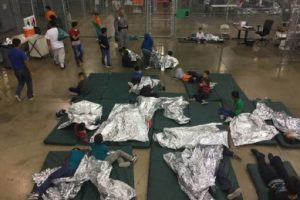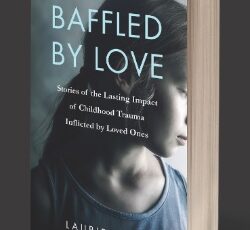By Laurie Kahn
September, 2004
I had worked with Martha for many years. We visited her childhood of loss and sexual abuse together, the suicide of her brother, struggles with infertility and alcohol, the adoption of her son, and difficulties with her marriage. As Martha left my office one day she turned back and said, “I love you.”
I smiled warmly, as she started to leave. With her hand reaching for the door knob she glanced back again and said, “It wouldn’t kill you to say you loved me too.”
I thought to myself: Caring? Sure. Compassion? Definitely. Fondness? Absolutely. But love? Was that going too far? Did it push the limits of the sacred client-therapist relationship? The therapeutic relationship with clear, well-defined boundaries? I sit in the black chair with the padded arms and my clients sit in the purple tweed chair or the tan cloth chair. It’s all very predictable. Predictable is good. One of my colleagues once said they thought they bored their clients into health.
As Martha left that day, I was reminded of Tevye in Fiddler on the Roof, when he turns to Golde, his wife of 25 years, and asks her for the first time ever, “Do you love me?”
“Do I love you?” She replies as if he had asked a puzzling, slightly annoying and preposterous question. “I’ve washed your clothes, cooked your meals, cleaned your house, given you children, and milked your cow. After twenty-five years, why talk about love right now?”
I have written articles for professional journals about child abuse and its impact on the constructs of love. It is a topic I have thought about for many hours. Yet, at that moment with Martha I was speechless. I believed I was walking into dangerous terrain. I wondered: Is love the blurring of professional boundaries which can spill over to a sea of emotional quicksand?
Therapists are entrusted with a relationship in which we are mandated to ensure safety. Unfortunately, stories of sexual exploitation of clients by their therapists fill the annals of our profession. Our clients come with histories of sexual, physical and emotional abuse. Their caretakers have trampled their boundaries of body and spirit with no expressed regret. Love becomes an alibi. “But your father loves you,” Sophie’s mother tells her when she complains about her father’s rages and beatings. Susan asks her grandfather “Why do you touch me down there?” “Because I love you” he replies “but don’t tell your mother.” Love is riddled with danger and ambiguity.
It is my job to provide a compassionate yet safe and contained environment. Being a therapist is humbling. I make mistakes. I take responsibility when I do, and I make repairs. I am constantly engaged in the discipline of reflecting on the feelings that are evoked in me, so I do not do harm. The courage of my clients and the healing process fills me with awe.
Are we haunted by the notions of love that emerge from the betrayals of abuse? Is the combination of caring, commitment, responsibility, and awe – love?
I thought about Martha’s question with new clarity. I knew, as Golde also knew when she replies to Tevye “If this is not love, what is? I suppose I do love you.”
Tevye responds, “It doesn’t change a thing, but it’s nice to know.”






